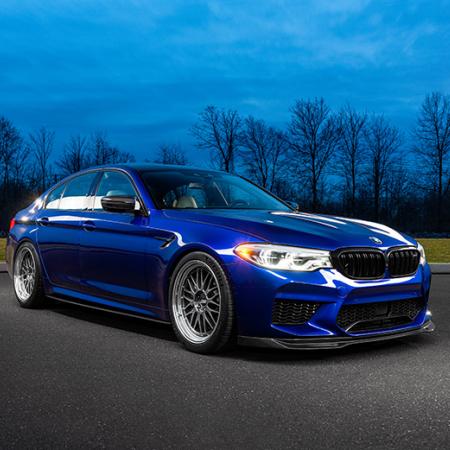BMW and Toyota are close to finalizing a deal for the future of each automaker's hydrogen-fuel cell technology. The agreement will mean BMW licenses future technology from Toyota, and marks the latest cooperation between the two automakers.
BMW has previously experimented with hydrogen in internal-combustion engines, but is set to expand its portfolio with a fuel-cell vehicle, the likes of which Toyota has been developing for several years.
Toyota recently revealed the FCV-R concept, which is a midsize vehicle with a Prius-like silhouette (but typical concept car detailing). It's due to be be built in 2015. Range is said to be around 435 miles, and it would cost in the region of $50,000.
BMW's hydrogen vehicle will sit among a range of increasingly innovative vehicles, including a three-cylinder turbocharged engine intended for the Mini and some smaller BMWs, the i8 plug-in hybrid sports car and the i3 electric car, which BMW recently confirmed will get a motorcycle-based range-extending option.
The fuel cell deal isn't the first time BMW and Toyota have shared technology. Previous deals include diesel technology and lithium batteries. The current agreement will finalize plans put in place after the two companies signed a memorandum of understanding last June.
In case you've forgotten, the BMW H2R set hydrogen-powered speed records back in 2004 at the Miramas high-speed Proving Grounds in France. In so doing, BMW proved that hydrogen could replace conventional fuel without compromises in performance or emissions.
The H2R Record Car used a version of BMW's 12-cylinder 6-liter power plant from the 760i and 760Li Sedans. It developed 232- horsepower using liquid hydrogen fuel. This translated into a 0-60 mph in under 6 seconds and a top speed of 174 mph.
The main modifications to the 760i engine involved adapting the fuel injection system to the special features and requirements of hydrogen fuel. Intake valves were enlarged, valve seat rings were modified, special hydrogen- specific injection valves were used and relocated to the intake manifold instead of the combustion chamber. Finally several engine management changes were made to tune the engine to hydrogen's unique combustion characteristics. ––Paul Duchene
The following records were set in Miramar: Time in sec. Speed in km/h
- Flying-start kilometer 11.993 secs; 300.190 kmh
- Flying-start mile 19.912; 290.962
- Standing-start 1/4 mile 14.933; 96.994
- Standing-start mile 36.725; 157.757









